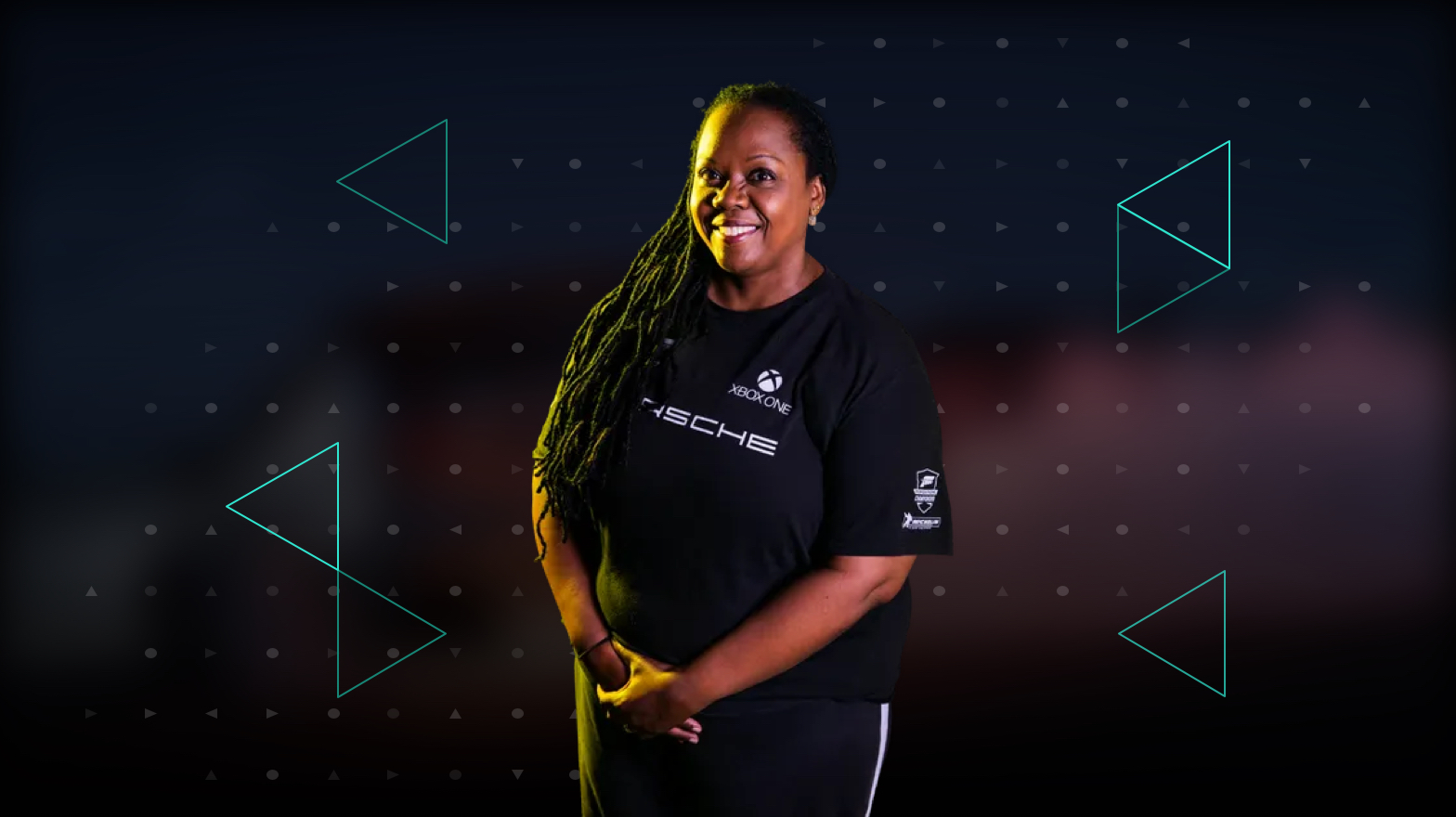Pathfinding: From drums to Director of Licensing at Turn 10
Discover how Kim Williams-Osborne transitioned from professional drummer to licensing for the Forza franchises.

People come into the games industry from all kinds of backgrounds. Over the next few weeks, I'm going to focus on a set of unique career paths that showcase individuals moving from the music industry into games. This week I'm sharing the story of Kim Williams-Osborne, the Director of Licensing at Turn 10 Studios.
Backstory
While attending The University of British Columbia during the 00s for her master's in political science, Kim was a semi-professional drummer in punk bands while doing a variety of session work. As a woman drummer she was often overlooked and was always asked to prove herself. A self-described introvert, she was especially interested in the behind the scenes work of running a band and began focusing on how bands were being paid. Kim became more attentive to the contracts they were signing and as she took on independent session work, she did research about royalties.
Kim eventually realized she didn't want to be a professor, so after graduation she leveraged her band experience into a job at an independent record label working on royalties, licensing and contracts. Kim was comfortable with the various types of licensing, contracts, and royalty agreements and found she could use her unique combination of licensing and contracts expertise in fields other than music without needing a law degree.
What a Director of Licensing does
Kim and her team oversee licensing for all 3rd party IP that is featured in games for the Forza franchise. Authenticity is a cornerstone of the Forza racing experience, so almost everything needs to be licensed in some way. Cars, racetracks, buildings, and even locations are often owned by a person, or multiple people, and the studio must get the rights to use that IP in game.
Ironically, the one element Kim's team does not handle is music licensing – tune in to the next Pathfinding blog post to hear about someone from that team. However, her team does coordinate reviews of the lyrical content of songs to ensure that included tracks are appropriate for the age rating of the game. Her team also does global readiness reviews to ensure content will not offend and will be acceptable in other regions. On average there are over 1500 pieces of content they review per game.
A large part of Kim's role relies on good negotiation skills—both externally and internally. Her colleagues can be very passionate about having a specific car in a game, and sometimes it's Kim's job to explain why they can't use it and help them come up with another plan. Other times, she approaches new external partners and must introduce them to the game and get them interested in licensing their IP to a video game. "Negotiation is listening, Kim says. "If you are patient and you listen, the other party will let you know what they need to make the deal."
Life at Turn 10
Working at Turn 10 there are a lot of moving pieces. Between the Forza Motorsport and Forza Horizon franchises there are multiple games, game teams, and external partners all over the world that need support. Sometimes they want the same thing, but other times they have different priorities or there are unique local requirements. "Balancing everyone's needs while ensuring the development of the game stays on schedule is challenging, but also fun," says Kim.
Kim was not into cars at all when she started at Turn 10. Now, when she sees a car she appreciates it as a work of art, but that's as far as her interest goes. What keeps her interested and excited about her role is the language in contracts and the challenge of figuring out how to construct the language to get what both parties need under reasonable terms.
Starting out new to gaming, without a background in cars, at a studio known for its car expertise wasn't easy. Early on, people questioned her ability to do her job successfully without extensive car knowledge. She pushed back, emphasizing that they didn't have her knowledge of contracts. "I didn't know how to build a car or create this game," Kim says, "but I did know how to write a contract and license content, and I'm good at it." Kim was similarly direct with her manager about her concerns about transitioning her career into gaming. When he asked what she needed to be successful she told him "I need you to have my back when people question me or go over my head. And he did. That was a very positive experience."
Gaming History
Kim states that she "didn't play a lot of games because there weren't a lot of people or characters in games that looked like me." While she sees more diverse characters and stories that interest her now, Kim says she still does not play games a lot—and she wants others to know that it's not a requirement. Her team includes people with different backgrounds, many of whom are not gamers, and having that variety of talent leads to a diversity of thought and will lead to different approaches to how we make games. Kim also wants to share that "it is possible to work in gaming and not be an engineer or artist – I am proof that there are opportunities out there for people who have different skillsets but are interested in this genre."
